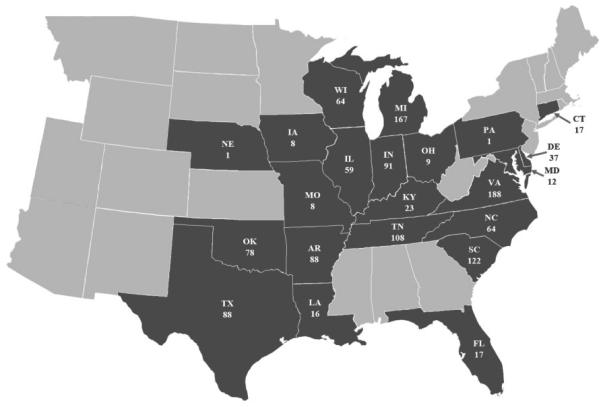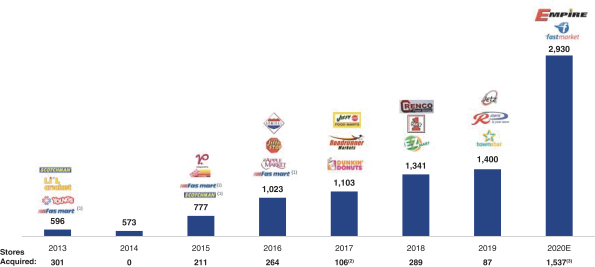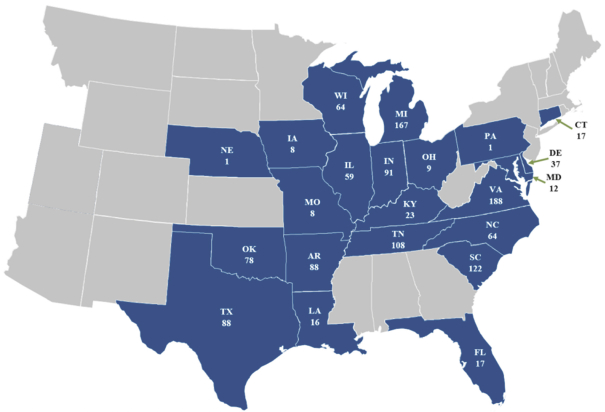Results of Operations
Our entire activity from February 13, 2019 (inception) through July 11, 2019 consisted of formation and preparation for the IPO, and
as such, we had no operations and no significant operating expenses. Subsequent to the closing of the IPO on inception, our other income consists of interest and dividend income earned on the investments in our Trust Account and our operating costs
include costs associated with obtaining directors and officers insurance and other general and administrative costs.
For the period from
February 13, 2019 (inception) through December 31, 2019, we had net income of $2,997,981, which consists of formation and operating costs of $567,808 and a $796,931 provision for income taxes, offset by interest income of $4,311,667 and
unrealized gains of $51,053 on marketable securities held in our Trust Account.
For the three months ended June 30, 2020, we had a
net loss of $110,239, which consists of operating costs of $310,583, a $25,441 provision for income taxes, and an unrealized loss of $205,945, offset by interest income of $431,730 on marketable securities held in our Trust Account (as defined
below).
For the six months ended June 30, 2020, we had net income of $1,063,609, which consists of operating and transaction costs
of $626,256, a $293,261 provision for income taxes, and an unrealized loss of $39,612, offset by interest income of $2,023,008 on marketable securities held in our Trust Account.
For the three months ended June 30, 2019 and for the period from February 13, 2019 (date of inception) through June 30, 2019,
we had net income of $340,047, which consists of formation costs and operating costs of $52,144 and a $90,392 provision for income taxes, offset by interest income of $432,440 and unrealized gains of $50,143 on marketable securities held in our
Trust Account.
Liquidity and Capital Resources
In June 2019, we consummated the IPO, in which we sold 40,000,000 Haymaker Units (including 5,000,000 Haymaker Units sold pursuant to the
underwriters partially exercising their over-allotment option) at a price of $10.00 per unit generating gross proceeds of $400,000,000 before underwriting discounts and expenses.
Simultaneously with the closing of the IPO, we consummated the sale of 6,000,000 Private Placement Warrants at a price of $1.50 per warrant,
generating gross proceeds of $9,000,000. Of this amount the Sponsor purchased 5,550,000 Private Placement Warrants for $8,325,000, Cantor purchased 383,333 Private Placement Warrants for $575,000 and Stifel purchased 66,667 Placement Warrants for
$100,000. Each Private Placement Warrant is exercisable to purchase one whole share of Haymaker Class A Common Stock at $11.50 per share. The Private Placement Warrants are identical to the Public Warrants subject to limited exceptions. In
connection with the IPO, we incurred transaction costs of $22,562,030, consisting of $7,000,000 of underwriting fees and $562,030 of other IPO costs.
Following the closing of the IPO on June 11, 2019, an amount of $400,000,000 ($10.00 per Haymaker Unit) from the net proceeds of the sale
of Haymaker Units in the IPO and the Private Placement Warrants was placed in the Trust Account” which may be invested in U.S. government securities, within the meaning set forth in Section 2(a)(16) of the Investment Company Act, with a
maturity of 185 days or less or in any open-ended investment company that holds itself out as a money market fund selected by the Haymaker meeting the conditions of Rule 2a-7 of the Investment Company Act, as
determined by the Company, until the earlier of: (i) the consummation of the initial business combination or (ii) the distribution of the Trust Account, as described below, except that interest earned on the Trust Account can be released
to Haymaker to pay its tax obligations.
Transaction costs amounted to $22,562,030, consisting of $7,000,000 of underwriting fees,
$15,000,000 of deferred underwriting fees and $562,030 of IPO costs. In addition, $1,444,570 of cash was held outside of the Trust Account and was available for working capital purposes.
243
























































